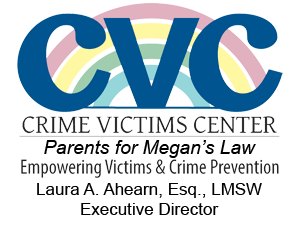How to Know If Your Loved One Is at Risk of Sex Trafficking, According to a Survivor and Activist
Kathy McGibbon Givens speaking at Montgomery County Coalition Against Human Trafficking
Twenty years ago, Kathy McGibbon Givens entered into an urban nightmare. At age 22, she started dating a man in Houston. When he invited her to go on a business trip with him to Dallas, she readily accepted. But when she arrived at the hotel, she was photographed for an escort website and prostituted out to men she didn't know.
The ordeal lasted nine months, until she was able to escape back home to her family.
Now, the Houston-based woman tells her story, helps other survivors take back their lives and advocates to change human trafficking laws.
"I overcame it, and I'm on this side now, and if I can overcome it, I know that everyone else that's going through it can too," Givens, now 42, tells PEOPLE in this week's issue. "I am a trafficking survivor, and I am an overcomer. I'm not broken."
Givens' story is all too common. In 2020, there were 10,583 sex trafficking cases reported through the Human Trafficking Hotline — a number that experts say is just a fraction of the problem. And even when traffickers are arrested, they are often not convicted. In the past two decades, there have only been 2,902 arrests for sex trafficking nationwide.
Kathy McGibbon Givens, Serving with Family for Twelve 11 Partners at Montgomery County coalition againzt Human Trafficking MCCAHT
Kathy McGibbon Givens and family representing Twelve 11 Partners | CREDIT: COURTESY KATHY MCGIBBON GIVENS
How It Happens
Protecting a young person from the world of sex traffickers is particularly tricky because sex trafficking is not a typical crime.
"The vast majority of child sex trafficking is perpetrated by people that the child knows and trusts, be it friends that they have met online or a parent or other family member," says Caren Benjamin, the chief communications officer at Polaris, the nonprofit organization behind the U.S. National Human trafficking Hotline.
Want to keep up with the latest crime coverage? Sign up for PEOPLE's free True Crime newsletter for breaking crime news, ongoing trial coverage and details of intriguing unsolved cases.
Violence isn't usually involved, at least in the beginning. "Children are not kidnapped and placed in trafficking situations. They are generally recruited willingly in a complicated way," says Benjamin.
For Givens, her trafficker would often say menacing things to her. "There were words behind his words," she says, adding that he would threaten that she wouldn't see her children again.
Who Is Targeted
Traffickers are on the lookout for vulnerable people, whether it's children who are having trouble with their parents (30% of children who are trafficked had a history of running away from home, according to the 2020 Federal Human Trafficking Report) or perhaps those with substance issues (43% of kids who are trafficked).
"They are people who have specific needs that can't be met elsewhere, whether it's a job or a feeling that they're loved and they belong somewhere," says Benjamin.
But sometimes, victims do not fit the mold. Givens says that she had a very involved family who cared deeply for her.
"My mom was a house mom," says Givens, now 42. "She was very tight-knit with her kids, so very strict. We were very sheltered."
Still, traffickers find ways to intimidate their targets.
"Trafficking is a crime of manipulation and power. You have to understand what makes people vulnerable to trafficking, and if you understand the vulnerabilities, you're in the best possible position to keep the people that you love safe."
How to Escape
Escaping sex trafficking is often an arduous process. Many traffickers refuse to give their victims freedom — often using intimidation, threats and violence.
There are organizations that can help victims escape to safety, and many major cities have group homes to help people transition back into society.
If you or someone you know is being trafficked, these organizations can help:
National Human Trafficking Hotline: 888-373-7888
Shared Hope International: 866-437-5433
National Center for Missing & Exploited Children: 800-843-5678
Rescue America: 713-322-8000

Comments are closed.